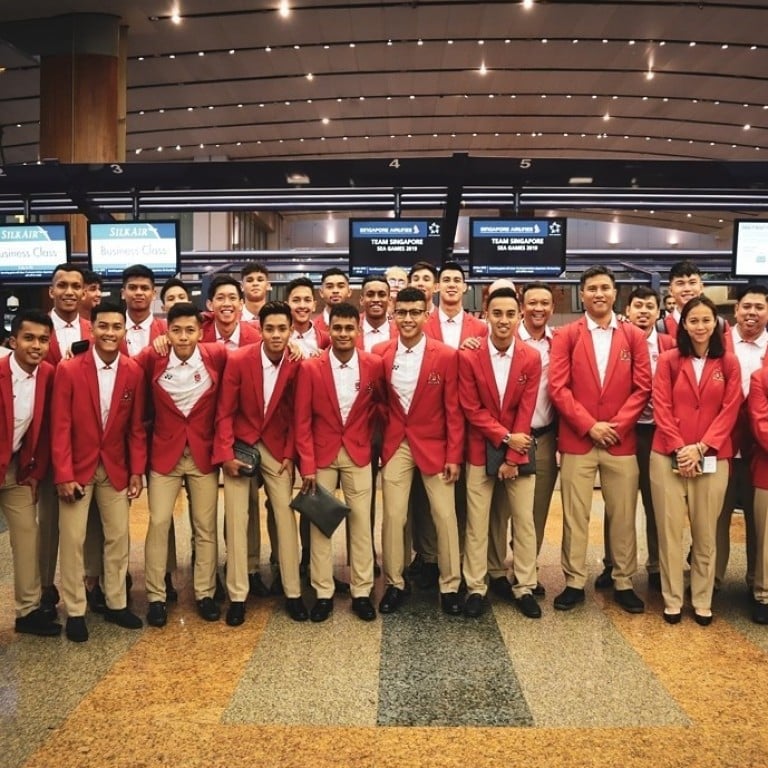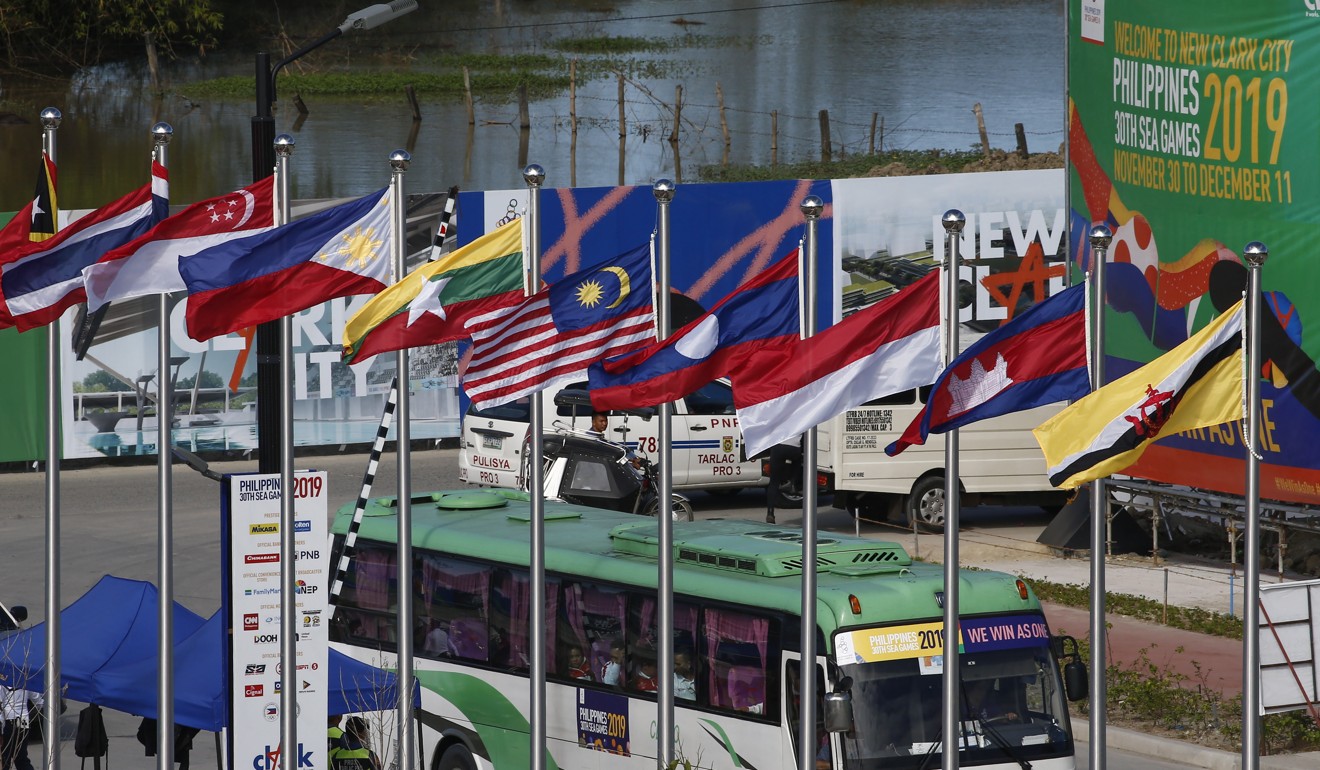
SEA Games 2019: Muslim athletes suffer shortage of halal food, despite repeated reminders from Philippines’ Islamic body
- Non-Muslim athletes also complain about the limited menu, food that lacks nutritional value and low drinking water supplies
- Singapore is one of a number of nations fielding Muslim athletes, along with Malaysia, Indonesia and Brunei
Philippines Muslim officials are hoping SEA Games organisers can work quickly to ensure a sufficient supply of halal food to visiting delegations after some teams complained about a shortage of meals for their Muslim athletes.
Ramadan Aguan, information officer with the National Commission for Filipino Muslims (NCFM), said games organisers had ignored reminders from the body to serve halal food, which means no pork and meat that is slaughtered according to Islamic rituals.
Food issues and other logistical problems prompted the Singapore team’s chef de mission, Juliana Seow, to write a letter of complaint to organisers PHISGOC. Even non-Muslim countries were unhappy about the food, saying the menu is limited, it lacked the nutritional value needed for athletes to perform, while drinking water was also scarce.
“We have some sort of problem because the organisers of the SEA Games have not been able to provide halal food,” Aguan told the SCMP. “Our organisation sent many reminders to them to make sure they have sufficient supplies of halal food but for some reason, we don’t know why, they did not consider it.
“We hope the problem can be resolved soon and we are confident that it will,” added Aguan, who said the issue is being addressed at the highest levels.
Singapore is one of a number of nations fielding Muslim athletes, along with Malaysia, Indonesia and Brunei. Apart from the food, Games organisers have been accused of incompetence over a number of transport and accreditation problems, with arriving teams left stranded at the airport or being sent to the wrong hotel.
According to local media, Seow’s letter to the organisers mentioned that the team were forced to order food from outside. The Philippine women’s football team was reported to have complained about the breakfast at the Athletes Village, which features kikiam – a kind of pork roll, which Muslims are unable to eat.
The Malaysian delegation was reported to have said that the only food they were able to eat was rice, pita bread and aubergines.
According to media outlets Rappler and Foxsports, Seow’s letter said: “We had tried our best to be patient and understanding. As much as we had tried to resolve the situation ourselves, as well as with our sports and you, these situations cannot continue any further as our athletes are badly affected and are not able to prepare for the games effectively.”
NCMF external affairs director Dimapuno Alonto Datu Ramos Jnr said organisers seemed aloof to requests to prepare halal food during the lead-up to the games.

“But it was always the same answer from them: we will contact you. They did initially, but then it was the NCMF which was always following up and offering to help,” he was quoted as saying.
The 30th edition of the SEA Games features 11 countries from the Asean region. The Games kick off on Saturday and run until December 11.
*The Singapore Olympic Committee has clarified that, contrary to an earlier version of this report, the Muslim athletes in the team were never served pork and it was only a lack of sufficient food.

